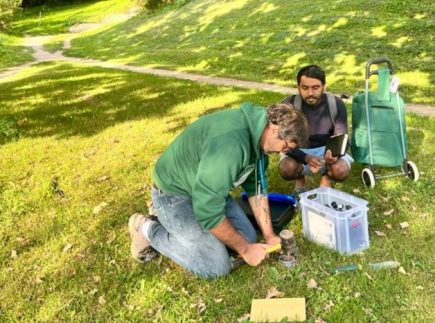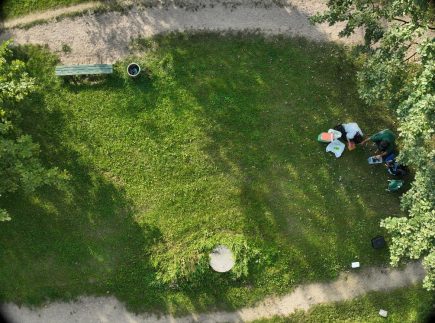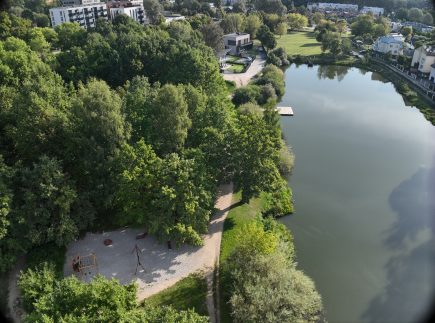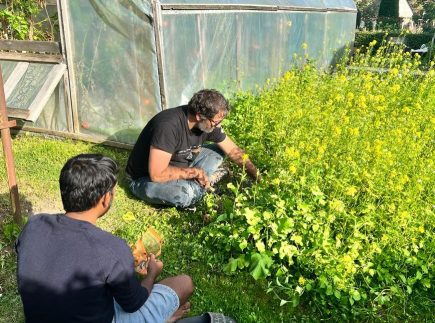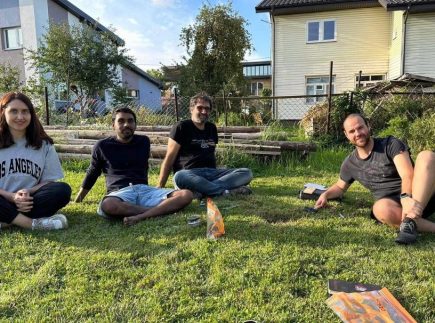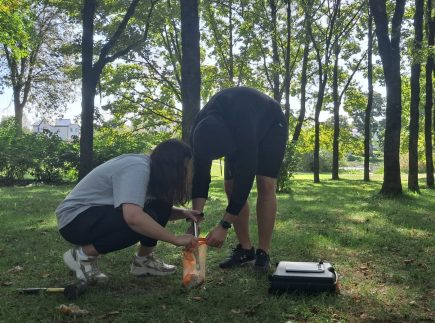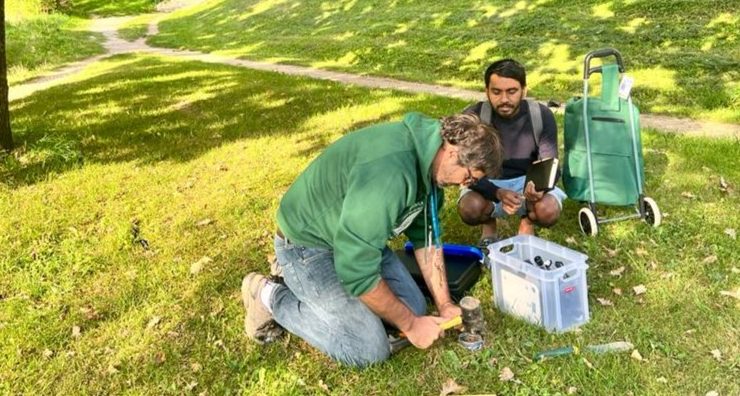
Man-made global warming has a direct impact on extreme weather events, which affect crop failures and economic instability, threaten human health, increase biodiversity loss and upset the delicate balance of life on Earth. One of the best ways to address climate change and environmental sustainability is to improve soil health. Does it ever occur to anyone that soil acts as a powerful carbon sink, reducing greenhouse gas emissions and stabilising global temperatures, while at the same time providing essential nutrients to crops and reducing the need for synthetic fertilisers?
Prof. Paulo Alexander Da Silva Pereira, Head of the Environmental Management Laboratory at Mykolas Romeris University (MRU), together with a team of researchers, is implementing the Horizon 2020 project "InBestSoil" ("Monetary valuation of soil ecosystem services and development of incentives for investment in soil health: integrating the topic of soil health into business and policy-making"), which is aimed at developing a framework for investing in soil health. The project was born out of the need to address the degradation of more than half of Europe's soils, which costs around €50 billion annually.
The "InBestSoil" project promoters - 19 institutions from 10 countries representing universities, small and medium-sized enterprises, consultancies, farmers and NGOs - believe that soil health is key to a sustainable future.
"Our aim is to develop a framework for the economic valuation of the ecosystem services provided by healthy soils, as well as for assessing the impact of soil interventions and incorporating them into business models and incentives. Public and private organisations need to be encouraged to invest in soil health and to develop products and services that are less damaging to the soil," says Prof. Paulo Pereira.
"InBestSoil" will provide data, evidence, tools and models to assess how investments in soil health can help the transition towards sustainable and long-term use of resilient soils. Six beacons and three living labs, with a total of nine research sites in four European biogeographical regions (Boreal, Continental, Atlantic, Mediterranean) and different land uses (agriculture, forest, urban, mining), will be used as models for co-development and co-design. This approach ensures that the project results are relevant and applicable to different stakeholders and contexts.
The project will be completed at the end of 2026.
Photos: a soil sampling for the project, "Monetary Valuation of Soil Ecosystem Services and Creation of Initiatives to Invest in Soil Health." The soil sampling was taken on 4 plots (Urban Park, Urban Garden, Urban Lawn, and Urban Grass Land) in Baltupiai, Vilnius.
